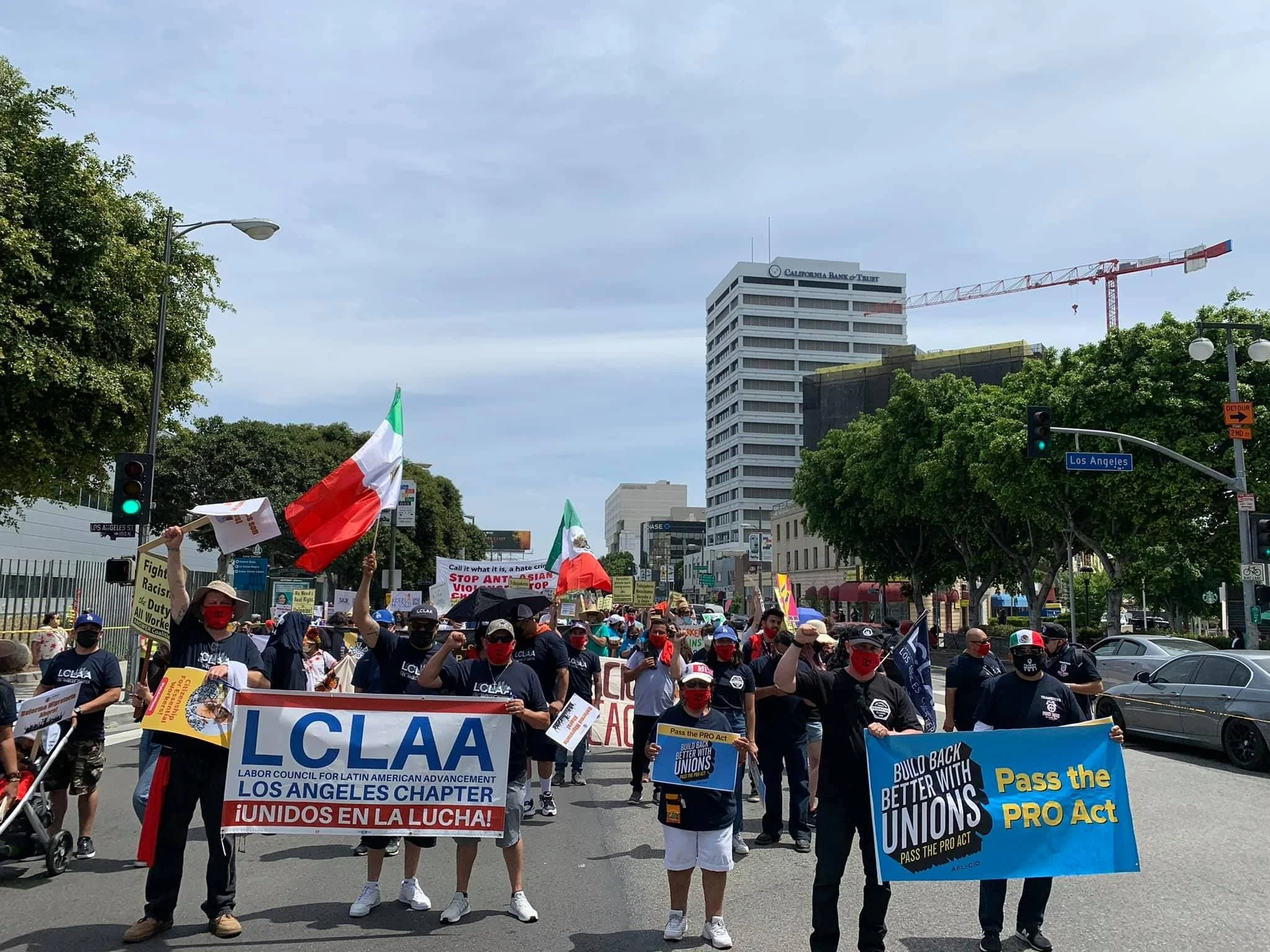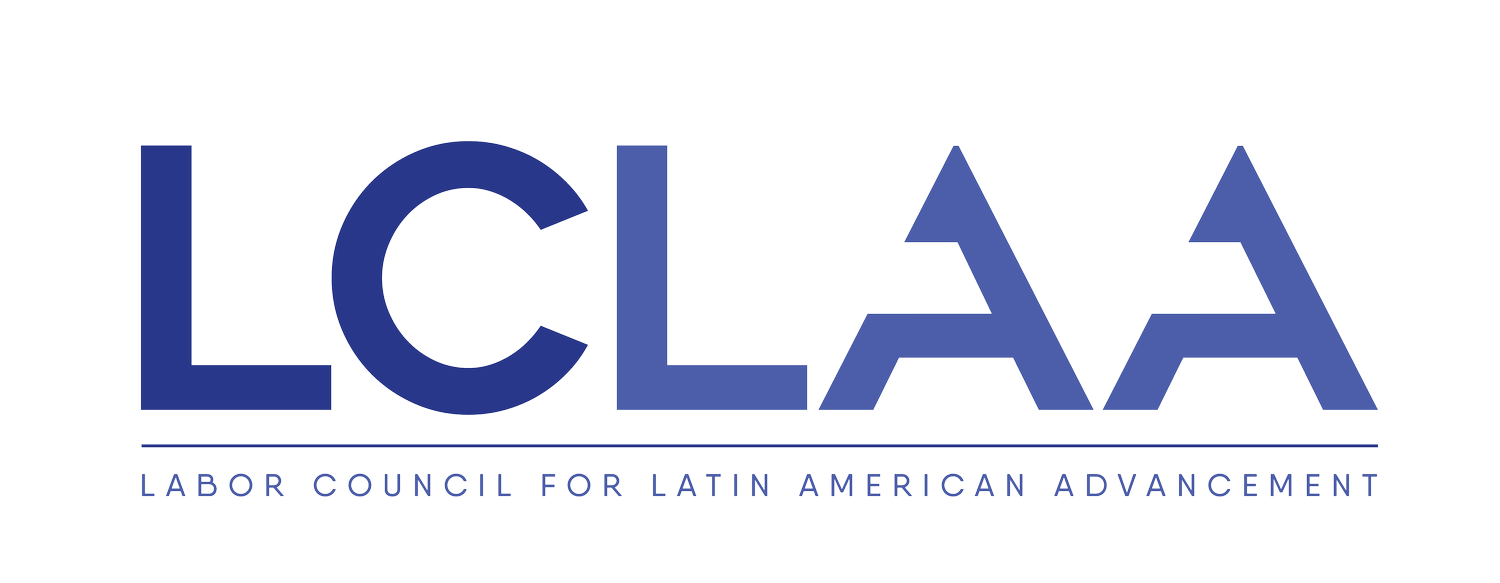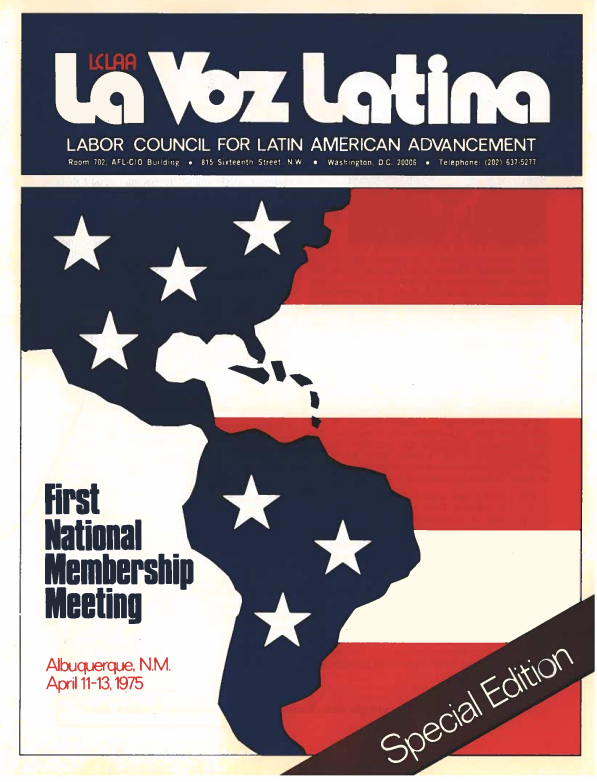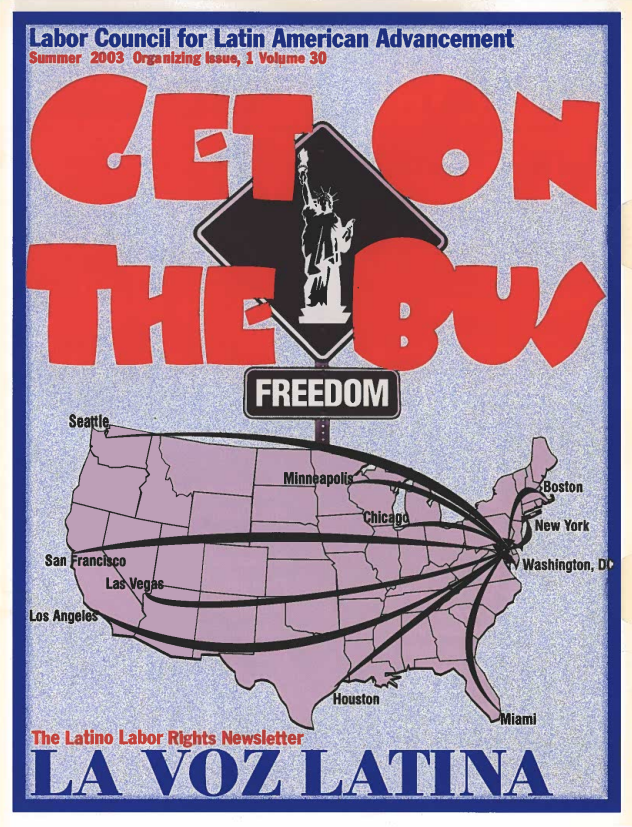
About us

-

History
Founded by a group of Latino/a trade unionists in 1973, the Labor Council for Latin American Advancement (LCLAA) has become the leading advocacy group for Latino/a working rights in the country.
See the timeline below to learn more about LCLAA our history.
-

Mission
LCLAA is the leading national organization for Latino/a workers and their families. LCLAA was born out of the need to educate, organize and mobilize Latino/as in the labor movement and has expanded its influence to organize Latino/as in an effort to impact workers’ rights and their influence in the political process. LCLAA represents the interest of more than 2 million Latino/a workers in the American Federation of Labor-Congress of Industrial Organizations (AFL-CIO), The Change to Win Federation, independent unions, and all their affiliate unions.

50 Años de lclaa
Crafting a future of power and prosperity
1972
A small group of trade unionists of Latin American descent and key leaders of the AFL-CIO come together to discuss the possibility of creating an organization that would promote Latino/a participation in trade unions and politics.
1973
In November, Latino/a labor leaders host the founding conference of the Labor Council for Latin American Advancement in Washington, DC. The event draws attention from all sectors of the labor movement, and the founding members draft the organization’s Declaration of Principles and Objectives.
1974
A task force of 16 LCLAA members from various regions and unions leads an intensive drive to recruit new members and organize new chapters. By November, the task force has established 25 new chapters in 12 states.
—————
In collaboration with like-minded organizations like FRONTLASH, LCLAA’s new chapters engage in energetic voter education, registration, and get-out-the-vote campaigns. By the November election, LCLAA is credited with helping register over 35,000 voters across the country.
1975
LCLAA hosts its first National Membership Convention from April 11th to 13th in Albuquerque, NM. The event is attended by 150 delegates from 44 international unions as well as rank-and-file members, executive board members, and dignitaries from the labor movement and New Mexico politics. Notable guests include New Mexico Governor Jerry Apodaca, Arizona Governor Raul Castro, US Senator Joseph Montoya, New Mexico Secretary of State Ernestine Evans, and Navajo Nation Chairman Peter McDonald.
—————
By the time of the convention, LCLAA boasts 35 chapters and 640 members. LCLAA leaders plan to host two regional educational conferences on civic engagement, drawing on the experience of FRONTLASH and the A. Phillip Randolph Institute. In addition, the organization launches a collaboration with the National Council of La Raza and the Southwest Voter Registration Education Project to improve demographic and economic statistics on the Latino/a Population.
1978
LCLAA hosts its 2nd National Membership Convention, themed “Hispanic Power, today and Tomorrow” from April 13th to 16th in Rosemont, IL. The organization now includes 61 chapters in 22 states. In California, Texas, and Illinois, chapters have formed state councils to better coordinate advocacy work.
—————
LCLAA turns it’s sporadically-published membership bulletin, entitled La Voz Latina, into a bi-monthly periodical covering chapter activities and advocacy issues relevant to Latino/a workers.
1979
LCLAA sponsors the National Conference on Jobs for Hispanic Americans at the University of New Mexico’s Albuquerque campus. The gathering of Hispanic marks the first major collaboration between Hispanic groups across the country and include s workshops on urban development, undocumented workers, and national full employment. The conference produces the “Declaration of Albuquerque,” which affirms the commitment of the participating groups to progressive political reform.
1981
President Ronald Reagan fires thousands of members of the Professional Air Traffic Controllers Organization (PATCO) and fines their union millions of dollars for striking for better working conditions. The attack marks the beginning of decades of anti-labor hostility and paves the way for employers to fire striking workers, which was previously considered unacceptable, even in the private sector.
Protesters crowd the National Mall on the first Solidarity Day
—————
LCLAA takes part in the first Solidarity Day rally hosted by the AFL-CIO on September 19th. The event draws over a quarter-million people in Washington, DC alone and becomes a model event that is repeated throughout the 80s. Many of the demonstrators hope to support recently fired air traffic controllers and respond to President Reagan’s assault against organized labor
1983
LCLAA celebrates it’s 10th anniversary on November 14th, recieving a congratulatory letter from AFL-CIO President Lane Kirkland. Senator Alan J. Dixon (IL) and Rep. Esteban Torres (CA) enter congratulatory statements into the Congressional Record.
—————
“In the ten years since its founding, LCLAA has more than lived up to the AFL-CIO’s hopes and expectations... You opened the eyes of Hispanic workers in every community to how much they had in common”
1987
In response to the passage of the Immigration Reform and Control act of 1986, which granted amnesty to millions of undocumented immigrants, LCLAA establishes an Amnesty Assistance Program to help undocumented workers regularize their immigration status. As part of the initiative, LCLAA collaborates with labor unions and other community organizations to distribute information on citizenship to undocumented workers across the country.
2003
LCLAA celebrates its 30th anniversary during the the National Trabajado Conference in Washington, DC.
—————
LCLAA members help lead the Immigrant Workers Freedom Ride (IWFR) to highlight the plight of undocumented workers. Inspired by the freedom rides of the 1960s civil rights movement, the IWFR brings together nearly a thousand unionists and immigrant rights advocates from across the country to demonstrate in Washington, DC and New York City.
As they travel east in bus caravans, the freedom riders stop in over 60 towns and cities to advocate for a “road to citizenship,” workplace rights, and family reunification for undocumented workers. The ride culminates in a da-long celebration of America’s immigrants in New York City’s Flushing Meadows Park on October 4th.
2012
On March 27th, LCLAA publishes a report entitled Trabajadoras: Challenges and Conditions of Latina Workers, showing that Latina workers often face discrimination based on both their gender and ethnicity. The report inspires LCLAA leadership to launch the Trabajadoras Campaign and Fellowship, which continue to confront the inequalities Latinas face.
—————
LCLAA celebrates its 40th anniversary during its 19th National Membership Convention, held from July 23rd to 28th in Orlando, FL.




